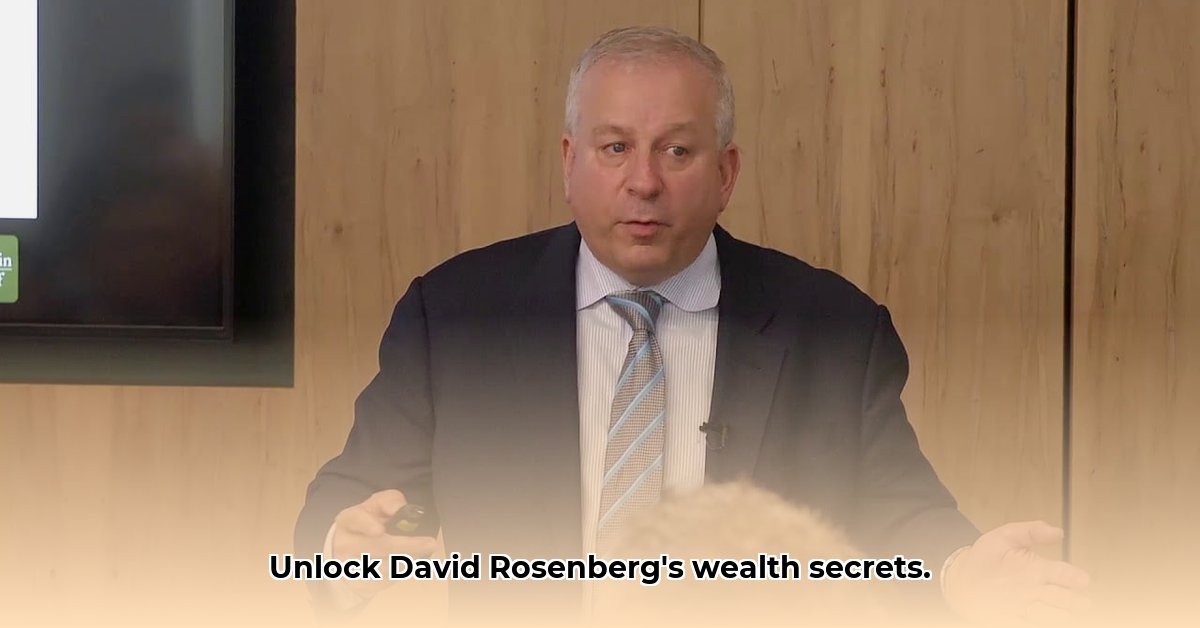
While the precise net worth of David Rosenberg remains undisclosed, analyzing his economic forecasts and investment strategies provides valuable insight into his approach to wealth building. This article explores his predictions, recommended investment choices, and the potential implications for his financial success.
Rosenberg's Economic Outlook: Navigating Deflation and Stagflation
David Rosenberg, a prominent economist, has gained notoriety for his predictions of a period of deflation followed by stagflation. This forecast, while not universally accepted, rests on several key assumptions. He argued that reduced consumer spending would initially lead to falling prices (deflation) but that persistent supply-chain disruptions could then trigger a period of high inflation coupled with high unemployment (stagflation). How accurate has this prediction been? While certain indicators initially supported the deflationary aspect, the extent and duration of supply-chain issues proved more complex than initially anticipated. The economic landscape is dynamic, and Rosenberg's predictions, like any economic forecast, are subject to significant uncertainty.
Rosenberg's Investment Strategies: A Portfolio for Uncertain Times
Given his stagflationary outlook, Rosenberg advocates for specific investment strategies aimed at preserving and growing wealth in a volatile economic environment. His suggested approaches include investments in gold and farmland.
Gold, a traditional safe-haven asset, is often seen as a hedge against inflation. Its historical performance during periods of economic uncertainty demonstrates its potential to retain value even as the value of fiat currencies declines. However, gold is not without its risks; its price can fluctuate significantly based on various market forces and it does not generate income.
Farmland represents another strategic investment in Rosenberg's model. The argument here centers around the potential for increased food prices resulting from ongoing disruptions in the supply chain. This investment carries a longer-term horizon, requiring patience and an understanding of the inherent risks associated with agricultural production and land ownership.
Actionable Intelligence: Analyzing Rosenberg's Investment Recommendations
| Asset Class | Rationale | Potential Benefits | Risks |
|---|---|---|---|
| Gold | Inflation hedge; historically maintains value during economic uncertainty. | Preserves capital; potential for price appreciation. | Price volatility; lack of income generation; susceptible to global market forces. |
| Farmland | Potential for increased food prices; tangible asset. | Appreciation in land value; potential for rental income; long-term growth potential. | Requires significant capital; management intensive; illiquid; susceptible to weather conditions and government regulations. |
Implications for Rosenberg's Wealth: A Qualitative Assessment
While we cannot definitively quantify David Rosenberg's net worth, his strategic investment choices reveal his approach to wealth management. The success of his portfolio hinges on the accuracy of his economic forecasts. Should his predictions of stagflation prove correct, his investments in gold and farmland could significantly increase in value. However, the risk profile is significant. Unforeseen shifts in inflation, further supply chain disruptions, or inaccuracies in his economic analysis could all negatively impact his financial outcomes.
Risk Assessment Matrix: Navigating the Uncertainties
| Risk Factor | Likelihood | Potential Impact on Portfolio Value | Mitigation Strategies |
|---|---|---|---|
| Unexpected inflation surges | Medium to High | High negative | Diversification; inflation-protected securities; strategic asset allocation. |
| Extended supply chain disruptions | Medium | Medium negative | Geographical diversification of farmland holdings; proactive risk management. |
| Geopolitical instability | Medium | High negative | Diversification across asset classes; strategic hedging. |
| Inaccurate economic predictions | Medium | High negative | Continuous monitoring and adaptation of investment strategies. |
Conclusion: The Rosenberg Equation—A Work in Progress
David Rosenberg's economic forecasts and investment strategies provide a fascinating case study in navigating economic uncertainty. While his net worth remains private, his publicly available insights offer valuable perspectives on wealth protection and long-term investment planning. The success of his approach, however, remains contingent on the accuracy of his economic predictions and the ability of his chosen assets to withstand market volatility and unforseen global economic events. It is essential to remember that investment strategies should be tailored to individual circumstances and risk tolerances, with expert financial advice always recommended.